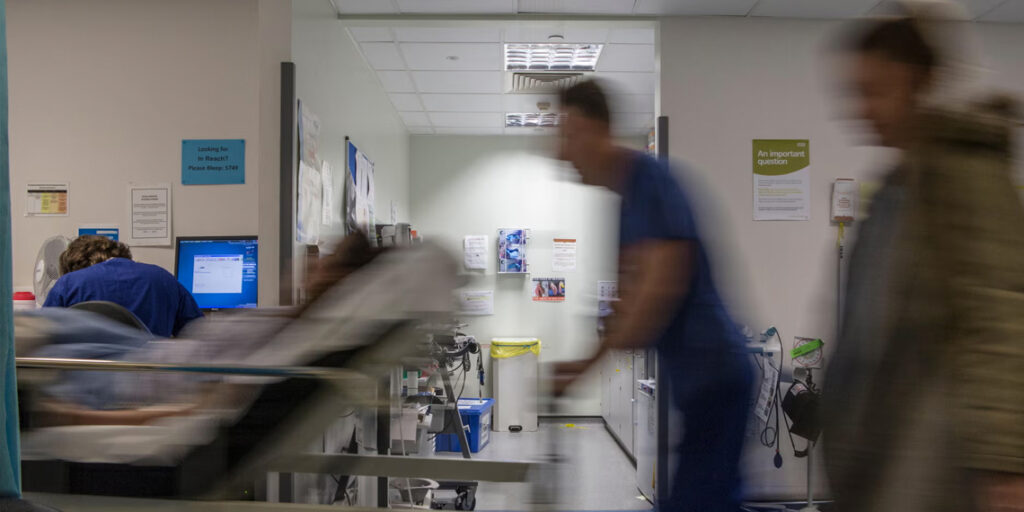Health Secretary Wes Streeting convened an emergency meeting with NHS England leaders to address mounting concerns over a potential winter healthcare crisis. The meeting, held on Monday, included Amanda Pritchard, Chief Executive of NHS England, and senior leaders from major hospital trusts. Streeting emphasized that patient safety must take precedence over meeting waiting time targets as the health service braces for unprecedented pressures.
The urgent talks were prompted by NHS England’s warning of a possible “quad-demic” this winter, involving flu, COVID-19, respiratory syncytial virus (RSV), and norovirus. Current data reveals that more than 2,000 of the NHS’s 100,000 beds are already occupied by patients suffering from these illnesses. COVID accounts for 1,390 beds, norovirus for 756, and RSV has left 142 pediatric beds filled. Additionally, ambulance services are struggling to meet the rising demand for 999 calls.
Streeting remarked, “We inherited a broken NHS where annual winter crises were the norm. This year, we’re witnessing record pressure on services even before the peak of winter hits. Patient safety must be prioritized as we brace ourselves for the months ahead.”
Efforts to Address Winter Pressures
Streeting instructed local NHS leaders to expedite patient transfers from ambulances into hospitals to free up paramedics for other emergencies. He also called for stricter measures to prevent extended waits in A&E departments.
Amanda Pritchard reinforced these priorities, acknowledging that the NHS is facing immense challenges. She noted that the colder weather would further strain services, despite the rollout of “virtual wards” and the delivery of over 27 million vaccinations since September.
“Patient safety must be paramount as the NHS, local councils, and social care providers work together to manage the number of hospital beds occupied by patients who are medically fit for discharge,” Pritchard stated.
Concerns from Medical Professionals
Despite these initiatives, hospital doctors expressed unease over the situation. Dr. Tim Cooksley, former president of the Society for Acute Medicine, criticized the need for the Health Secretary to remind NHS staff to prioritize patient safety. He explained that systemic issues, including staffing shortages and insufficient resources, were preventing frontline workers from delivering safe and effective care.
“The reality is that hospitals and staff are doing everything they can under impossible circumstances. The surge in winter illnesses like flu, COVID, and RSV means many hospitals will declare critical incidents, and patient safety will inevitably be compromised,” Dr. Cooksley said.
Urging Public Action to Support the NHS
The UK Health Security Agency’s Chief Medical Adviser, Prof. Susan Hopkins, called on eligible individuals to get their winter flu vaccinations. She warned that the rising number of flu cases could lead to increased hospitalizations and deaths over the Christmas period.
“Flu is sharply increasing, putting more people in hospital. Without greater vaccine uptake among those at risk, we could see even higher hospital admissions and tragic outcomes during the holiday season,” Hopkins stated. “The flu vaccine remains our best defense.”
The NHS, now under immense pressure, is racing to mitigate the effects of this winter’s quadruple health threat. Leaders stress that collaboration across healthcare systems and public participation in vaccination efforts are crucial to managing the crisis.


